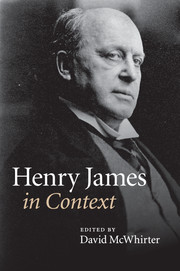Book contents
- Frontmatter
- Contents
- List of Illustrations
- Notes on Contributors
- Preface
- Abbreviations
- Chronology
- Part One Life and career, times and places
- Part Two Historical and cultural contexts
- Part Three Reception
- Chapter 37 Publishing history and contemporary reception
- Chapter 38 Critical response, 1916–1947
- Chapter 39 Critical response, 1947–1985
- Chapter 40 Recent criticism (since 1985)
- Chapter 41 Translation and international reception
- Further reading
- Index
- References
Chapter 40 - Recent criticism (since 1985)
Published online by Cambridge University Press: 05 August 2014
- Frontmatter
- Contents
- List of Illustrations
- Notes on Contributors
- Preface
- Abbreviations
- Chronology
- Part One Life and career, times and places
- Part Two Historical and cultural contexts
- Part Three Reception
- Chapter 37 Publishing history and contemporary reception
- Chapter 38 Critical response, 1916–1947
- Chapter 39 Critical response, 1947–1985
- Chapter 40 Recent criticism (since 1985)
- Chapter 41 Translation and international reception
- Further reading
- Index
- References
Summary
In 1996 I published a book-length bibliographical survey of Henry James studies. It was organized around three key terms that seemed to cover a lot of work, especially of the 1980s and 1990s: style, ethics, history – and especially the intersection of the three in a new understanding of what the historical means. When asked some ten years later to discuss recent James criticism for the present volume in the context of the evolving changes within literary and American studies, I find that the trend I saw as emergent back then very quickly became dominant. That is what John Carlos Rowe has aptly summarized in the title of one of his books as our scrutiny of The Other Henry James (1998) – the Henry James who ‘is valued because his hopes and worries still speak to us’, because ‘the changes we have passed through are readable historically from James and his contemporaries to us’; not the Henry James who left us a ‘testament to some dubious universal truth’.
James studies up to the late 1970s were by and large what we used to call ‘liberal humanist’ in orientation. What we meant by that was the proclivity for deriving from James’s work general lessons for ‘Man’. A good example is the common reading of ‘The Beast in the Jungle’, which held that John Marcher realizes too late in life that the big life-changing event he kept on waiting for had been under his nose all along: his true love was his dear friend, May Bartram. There was always a strong moralizing thrust to such readings: James’s work was indeed a ‘testament to some dubious universal truth’, as Rowe puts it; and it was an object lesson in how characters, and by natural, self-evident extension, readers, ought to conduct their lives, then as now. James himself, for liberal humanist study, fulfilled the idealized author function: he never married, because he was too dedicated to his muse. This so-called fact was documented biographically, at length, by Leon Edel, while Adeline Tintner, in a similar spirit, shed encyclopedic light on the creative process, in particular its sources in what James could have been acquainted with.
- Type
- Chapter
- Information
- Henry James in Context , pp. 435 - 444Publisher: Cambridge University PressPrint publication year: 2010



